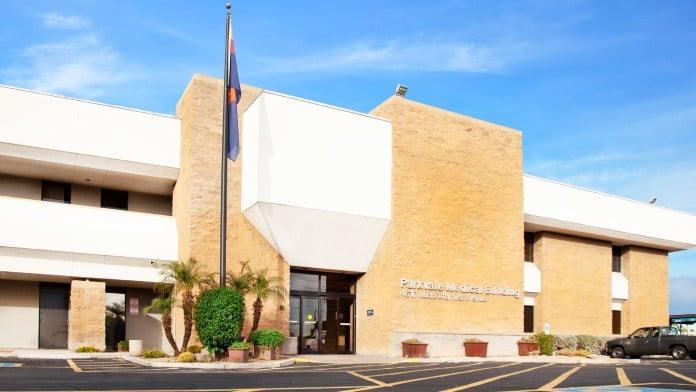It was great just needed a little more time
About Terros Health Recovery Center
Terros Health Recovery Center offers comprehensive services to individuals seeking support. All treatment is provided on an outpatient basis.
Outpatient Program
The outpatient program is appropriate for those who do not need a high level of supervision. The average frequency of meetings is one time each week. Individual therapy, group therapy, and family therapy are provided. Additional services include HIV support, dual diagnosis treatment, mental health treatment, addiction treatment, crisis services, and sober living home assistance.
Medication-Assisted Treatment
This program offers FDA-approved medications in combination with mental health counseling. Clients work with trained staff for dosing and participate in therapy to address their addictive patterns and create a relapse prevention plan.
Latest Reviews
Rehab Score
Gallery


Accepted Insurance
Other Forms of Payment
Medicaid is a state based program that helps lower-income individuals and families pay for healthcare. Medicaid covers addiction treatment so those enrolled can use their coverage to pay for rehab. When a program accepts Medicaid the client often pays very little or nothing out of their own pocket.
Medicare is a federal program that provides health insurance for those 65 and older. It also serves people under 65 with chronic and disabling health challenges. To use Medicare for addiction treatment you need to find a program that accepts Medicare and is in network with your plan. Out of pocket costs and preauthorization requirements vary, so always check with your provider.
Addiction Treatments
Levels of Care
Outpatient Programs (OP) are for those seeking mental rehab or drug rehab, but who also stay at home every night. The main difference between outpatient treatment (OP) and intensive outpatient treatment (IOP) lies in the amount of hours the patient spends at the facility. Most of the time an outpatient program is designed for someone who has completed an inpatient stay and is looking to continue their growth in recovery. Outpatient is not meant to be the starting point, it is commonly referred to as aftercare.
Treatments
Mental health rehabs focus on helping individuals recover from mental illnesses like bipolar disorder, clinical depression, anxiety disorders, schizophrenia, and more. Mental health professionals at these facilities are trained to understand and treat mental health issues, both in individual and group settings.
Clinical Services
Cognitive Behavioral Therapy (CBT) is a therapy modality that focuses on the relationship between one's thoughts, feelings, and behaviors. It is used to establish and allow for healthy responses to thoughts and feelings (instead of unhealthy responses, like using drugs or alcohol). CBT has been proven effective for recovering addicts of all kinds, and is used to strengthen a patient's own self-awareness and ability to self-regulate. CBT allows individuals to monitor their own emotional state, become more adept at communicating with others, and manage stress without needing to engage in substance abuse.
Group therapy is any therapeutic work that happens in a group (not one-on-one). There are a number of different group therapy modalities, including support groups, experiential therapy, psycho-education, and more. Group therapy involves treatment as well as processing interaction between group members.
In individual therapy, a patient meets one-on-one with a trained psychologist or counselor. Therapy is a pivotal part of effective substance abuse treatment, as it often covers root causes of addiction, including challenges faced by the patient in their social, family, and work/school life.
Staff

Karen Tepper
President & Chief Executive Officer

Vanna Campion, MD
Chief Medical Officer

Saffron Carew, MHA
Chief Information & Innovation Officer

Karen Carter, BBA, MBA
Chief of Staff & Chief Compliance Officer

Michael Marion, BFin, MBA
Chief Financial Officer

Jennifer Nye, LAC
Chief Operations Officer

Michael Kurtenbach, B.A., M.Ed.
Chairman

Buffy Wooten, B.A., MA, PhD
Vice Chairman

William V. Bidwill III
Secretary
Contact Information
4616 North 51st Avenue
Suite 108
Phoenix, AZ 85031

